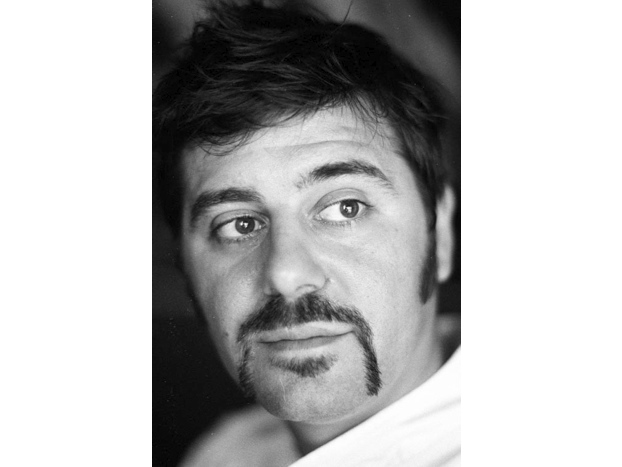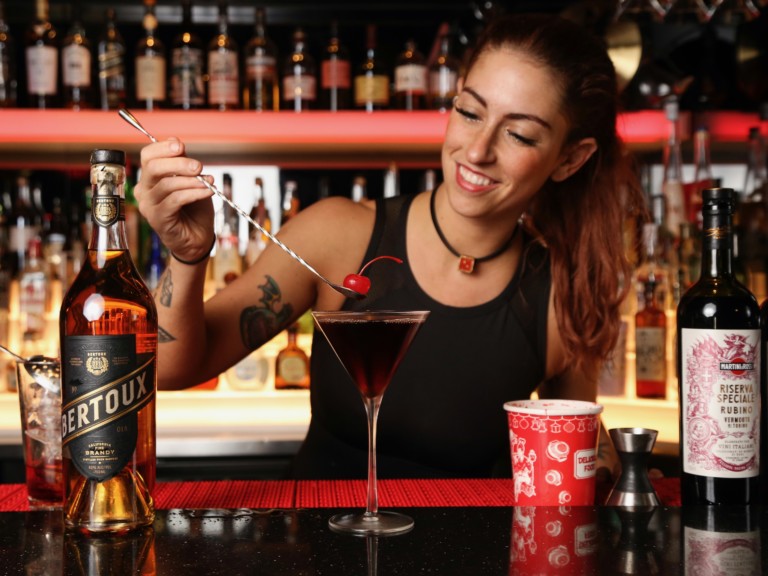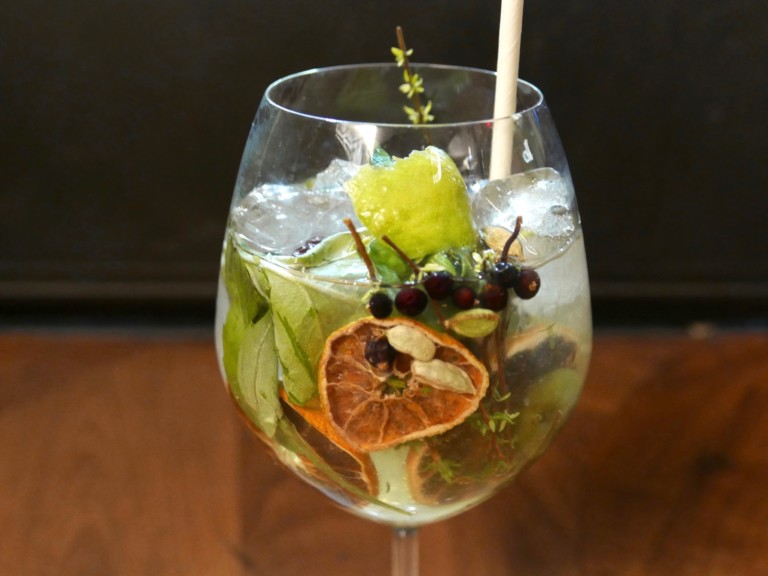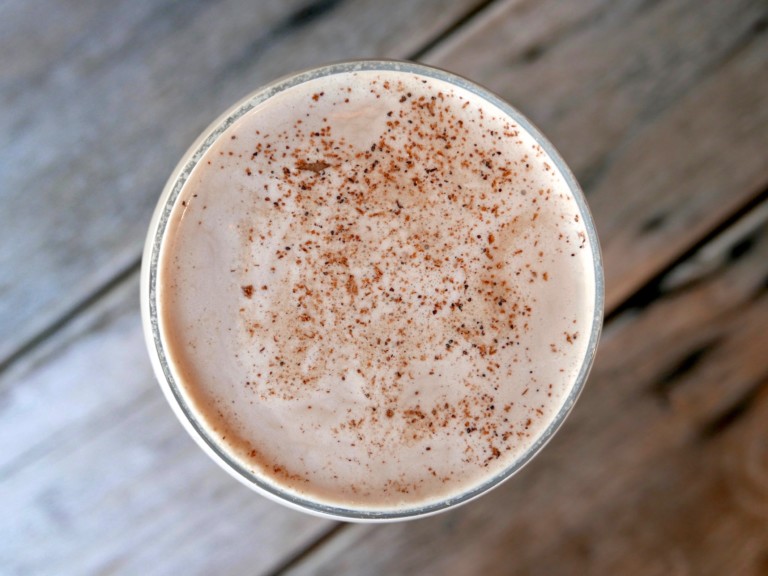Jason Kosmas grew up along the Jersey Shore and first bartended while attending Rutgers University. His spirit-fueled mission led to New York, where he worked at Pravda in SoHo before partnering on Employees Only and Macao Trading Co. He still co-owns both Manhattan venues with Dushan Zaric, but now, the vaunted bartender, consultant and author (You Didn’t Hear It From Us and Speakeasy: The Employees Only Guide to Classic Cocktails Reimagined) lives in Dallas, where he’s working as Beverage Director at Marquee Grill & Bar, with Top Chef veteran Tre Wilcox in the kitchen. We recently spoke by phone, where he further explained his background, approach and outlook.
What was your first bar job?
I went to school at Rutgers and I worked at a place in New Brunswick called The Old Bay. I worked as a barback there for a year and a half. I had a great mentor, Chris Dimitri. His claim to fame – he passed away a few years ago – but he was really on the forefront of importing microbrewed beers. It was in the early ’90s, so it was single malt, small batch bourbons and of course we started getting into super premium vodkas. The restaurant itself was Cajun, so we did have hurricanes and mint juleps, which I was taught to make as a barback. That was my first real start behind the bar. I worked a couple bar jobs in between, and then I moved to New York and got a job at Pravda in SoHo, which was set up by Dale DeGroff. That’s when everything changed, the first training that he did there, changed the way I looked at things.
How did the opportunity come about at Employees Only?
The long story short was that we were very inspired by Dale’s trainings, of course. At the time it was me and Dushan, we became the two creative forces at Pravda, and were actively seeking out a lot of the classics, seeking out pre 19th Century cocktail books to the 1950s. That was in the late ’90s. We were able to find our stuff in used bookstores, and by the time eBay came up, I was finding these things for like $5 online, like Jerry Thomas’ Bon Vivant’s Companion.
How do you differentiate the bar programs between Employees Only and Macao?
Employees Only is a straightforward combination of our techniques in the classic world of bartending. There are a lot of reinterpretation of classics…we make a lot of our own ingredients, infuse our own ingredients and as we like to say, we take a culinary approach to classic mixology. What we wanted to do was bring the spirit of classic mixology to the modern palate. At Macao, we have this training and technique behind us, but we really wanted to reinterpret East meets West…We incorporate a lot of eastern flavors into the cocktails, and not just fruit indicative of Asia and Southeast Asia.
Why’d you end up relocating to Dallas?
It was a family decision. My wife and I had our first child and wanted to have more – which we just did – our second daughter. We always loved New York, but when we had our first daughter, it became a different place…I wanted to make a move for my family for sure, but also wanted to move to a place that had a lot of potential. My wife’s from here, so I’ve been to Dallas time and time again. Dallas has the most restaurants pre capita of any city in the United States. It is a dining town, for sure. The opportunity here just seemed great, and I started to see instances of people wanting to do classic cocktails; I don’t think Dallas was looking at them as classic as much as they were looking at them as crafted. I felt I had a lot to bring to the table and a lot to offer…Dallas is a huge, huge travel hub too. People who live in Dallas travel all over the country, if not the world. Same with restaurants. So people in Dallas are seeking out these things. The first time I guest bartended at a friend’s bar, he promoted it. I was surprised how many people came out of the woodworks, cocktail geeks and bartenders who wanted to witness what other cities were doing.
Do you have a first cocktail memory, good or bad?
It has to be when I was around 10 years old. My father, who worked in the restaurant industry at that time, said there’s this drink called a Jolly Rancher, which tasted like a watermelon Jolly Rancher, and he let me take a sip of it, and it tasted exactly like a watermelon Jolly Rancher. When I finally got behind the bar, I sought it out and found the recipe, and I was amazed there was nothing watermelon in it. That was my entry into cocktails, how flavors can influence each other and trick your mind into tasting something that’s not there.
Did you become interested in spirits or cocktails first?
It kind of happened around the same time. I was more interested in beer when I was introduced to spirits. The Old Bay, it was the time when people were first discovering craft beer. I remember [Dimitri] imported Rodenbach Red; it came in a cask keg. For that time, it was really revolutionary. I was meeting a lot of brewers, so the relationship between me and beer was very personal. Just the level of interest on that, when I became a proper bartender, I started researching spirits and wondering what Campari tasted like. My first time behind the bar, I must have tasted half the spirits…By the time I got to Pravda, that was when I started to get that same personal relationship, whether it was Don Julio coming to eat caviar, and getting a chance ot talk tequila. Or meeting Desmond Payne, the master distiller of Beefeater. It was a great time to be a part of that. The spirits companies were shifting from being marketing driven to incorporating brand ambassadors who were bartenders and not just salesmen.
Would you say that you have any mentors?









Leave a Comment